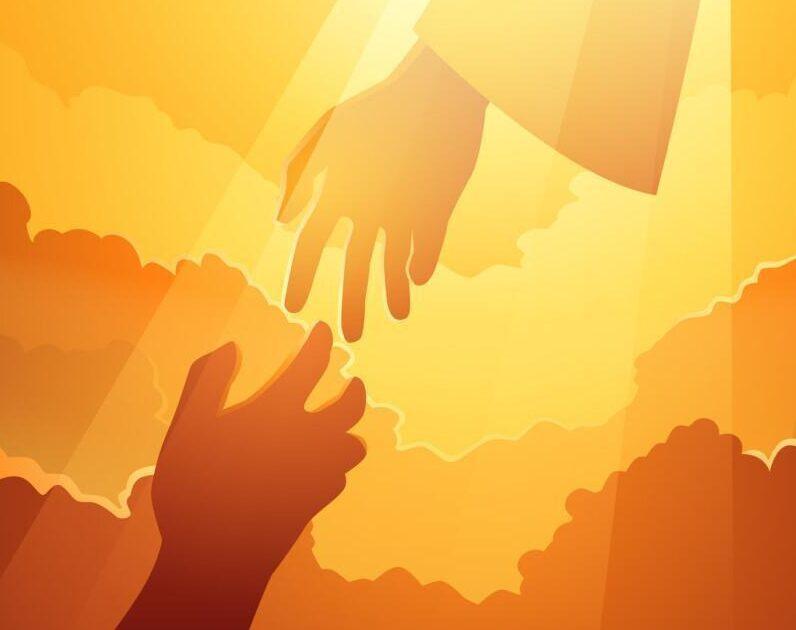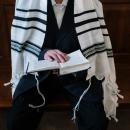
When the B’nai MItzvah Questions God
By Drew Isserlis Kramer
Is he an old bearded man in the sky? Or is she an all-powerful arbiter of good or bad, life or death? Is it a life force within all of us, an energy connecting us to the birds, the trees, the afterlife and our iPhones? As I say to my five-year-old when he asks tough questions about God, in life, there are many mysteries without definite answers. I tell him God is a loaded subject. Not everyone chooses to believe. And not everyone’s belief in God looks the same. At the heart of Judaism is a commitment to worship a single God. Humans fought and died for differences in that spiritual interpretation for thousands of years. To many modern-day people, the bloodshed over this unseen metaphysical power is enough to abandon God entirely. As a result, belief in God across all organized religions is on the decline, particularly among young people.
Still, according to a 2020 Pew research study, half of American Jews who were raised Jewish or had at least one Jewish parent say they had a bar or bat mitzvah. The devotion to the coming-of-age tradition, which asks for acceptance of God’s covenant, continues. In spite of that family commitment, some young b’nai mitzvah scholars struggle with their responsibility to study when their belief in God waivers or is non-existent. If you are a parent devoted to the b’nai mitzvah tradition but your child is questioning, I invite you to create debate.
Psst… Top 10 B’nai Mitzvah Gifts that Also Support Israel
“Tell me about the God you don’t believe in,” responds Senior Cantor Amanda Kleinman of Westchester Reform Temple in Scarsdale, New York. In her twenty years of cantorial work, Cantor Kleinman counseled many pre-teens struggling with their reason for being in a b’nai mitzvah program. When I asked how to approach such a student, Kleinman suggests you learn how the child defines God. Some children do not relate to the concept of an all-powerful Oz, lording over humanity. For children who have experiences of loss, they grapple with how God could exist when good people get sick and accidents happen. We live in a complicated world. It is hard to reconcile pain and suffering with the presence of an entity that can change all of that, but doesn’t.
In his book Bad Things Happen to Good People, famed author and Rabbi Harold Kushner wrote, “I believe in God. But I do not believe the same things about Him that I did years ago, when I was growing up or when I was a theological student. I recognize His limitations.” Kushner goes on to explain his choice to look at God as limited by the laws of nature and human free will. He stopped holding God responsible for illnesses, accidents, and natural disasters, because for him, he “gained little and lost so much” when he blamed God for those things.” In Judaism, there are 100 different names for God. God is so many things. Sharing other conceptions of God can help the child to see outside of the King of the Universe narrative and explore other interpretations that may open the child’s mind.
Or not.
For children that choose to continue questioning, God is always there. At different phases of life, one might feel differently on the topic. It is OK to feel doubt about things we cannot sense with anything, but our intuition. However, there are more reasons to maintain tradition beyond spiritual order. To be Jewish is an identity that goes beyond divine belief. Judaism is an Ethno-religion, a classification for people who share a common ancestral heritage and religious affiliation. As Jewish people, we are linked to a rich culture and historical experience, which, as our story of persecution reminds us, cannot be taken off by renouncing theological beliefs. Speak with your child about your favorite parts of being Jewish. Summer camp, bagels and lox, finding the afikomen, being lifted on a chair during the horah–like a b’nai mitzvah, being Jewish is joyful. A child who wrestles with God might love noodle kugel. Explore your family’s traditions in the context of your ancestral history. Share that Bubbie’s cholent recipe came off the boat with her from Russia to Ellis Island. Connect your love of tradition with your gratitude for the people that gave you the freedom to live Jewishly–and those still fighting for it today.
Whether or not the child believes in God, the b’nai mitzvah is a celebration of Jewishness. It is a statement of commitment to the future of this tiny group of people with a unique legacy and spiritual life. While your thirteen-year-old might not see it today, Jewish identity ebbs and flows. Judaism is always there to help explain the many magical mysteries of life and offer meaning and purpose when it gets hard. If b’nai mitzvah occurs during one of your child’s seasons of doubt, keep demonstrating its joy and light, and say, “Because I said so!”





